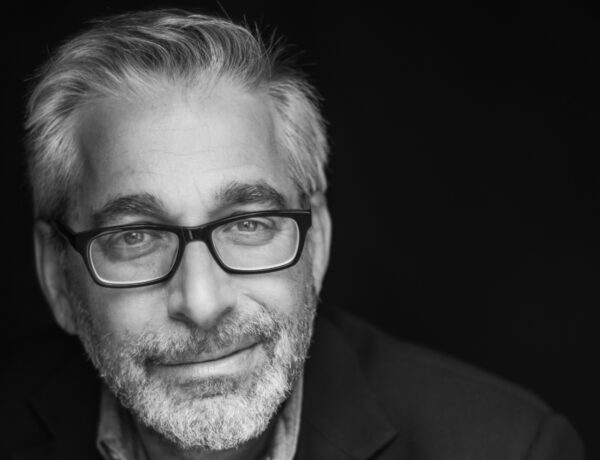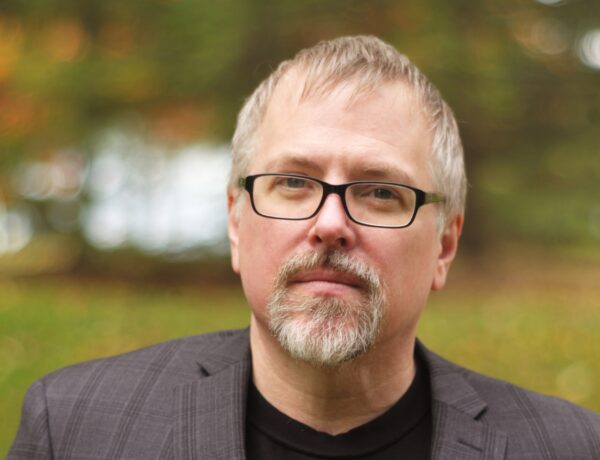Lia Purpura’s new collection of essays, All the Fierce Tethers (Sarabande Books) has arrived! Her most recent collection of poems is It Shouldn’t Have Been Beautiful (Viking/Penguin.) She is the author of three previous collections of poems (King Baby, Stone Sky Lifting, The Brighter the Veil); three previous collections of essays (Rough Likeness, On Looking, Increase), and one collection of translations (Poems of Grzegorz Musial: Berliner Tagebuch & Taste of Ash).
A Finalist for the National Book Critics Circle Award (for On Looking), she has been awarded a fellowships from the Guggenheim Foundation, the NEA, the Fulbright Foundation (Translation, Warsaw, Poland), and the Maryland State Arts Council, among others; she is also the recipient of four Pushcart Prizes.
Purpura’s poems and essays appear in: Agni Magazine, Ecotone, Emergence, Field, The Georgia Review, Orion, The New Republic, The New Yorker, The Paris Review, Ploughshares, The Southern Review and many other magazines and anthologies, including Best American Essays and The Pushcart Anthology.
Lia Purpura is Writer in Residence at the University of Maryland, Baltimore County, teaches at the Rainier Writing Workshop in Tacoma, WA, and reads and lectures around the country. She lives in Baltimore, MD.
Hi Lia, great to have you here with us today! Your writing often touches on themes of memory and the past. How do you see the act of writing as a way of engaging with the past?
It’s the ongoingness and not the fixedness of things I’m really interested in – the way the “past” not only seeds our now, but is the actual now. Places, scent of my childhood dogwood, loves, oceans, losses, the sound of the train across the street from my grandmother’s house – all these, from way back, are alive in the moment. And the present moment is always touching back to complex origins.
It’s not so much that memories “return” but rather more and more is available and alive and unfurling when I move into an image — the boundaries between times/eras have always felt thin to me, which I think, too, is an ecological expression of the cyclical, deep interconnectedness of us-all.
Of course, it’s a devastating reality to live with, too – the way the communal effects of destructive past decisions are finally showing up in the richest country on earth (I write this as Canadian wildfires darken the NY skyline and send the haze down here to Baltimore) so, finally, maybe, we’ll acknowledge the ways we are others. That our decisions radiate and seep. And that there is no “elsewhere”.
In your collection of essays, Rough Likeness, you write about the concept of “likeness” and how it informs our understanding of the world. How do you see this concept playing out in your own writing?
Recognizing “likeness” is another way of thinking about kinship. It’s stunning (as in being stunned by a blow) to recognize familiarity or understanding between oneself and another living being, human or other-than-human. Likeness extends a self, is capacious, surprising, full of awe. It’s also, sometimes, a measure of fear or even terror, or there’s the resistance to likeness to pay attention to, the refusal to see likeness that in and of itself is revealing or instructive.
Again, here, too, recognizing likeness is an eco-logical, eco-systemic reality – the same forces that assume the world is a”natural resource” to be colonised, excavated, and depleted, also seek to colonise our attention which is one of the most powerful resources (and sites of creativity and resistance) we have available to us, so thinking about attention as an fragile ecology makes it possible for me to think about ways to resist the extractive forces going after it, and protect and reconstitute it.
Your poems and essays often feature vivid sensory details and observations of the natural world. Can you talk about your approach to using sensory detail in your writing?
As human animals we still move through the world by way of our senses, however mediated or diminished by devices we’ve allowed the senses to become – and I’m not talking about assistive technology that allows people to hear more fully, for example, or move about independently.
I’d like to reduce the distance between perception and language, and get language close to the body’s experience of the world. So it’s not so much “using” sensory detail but being in the senses to such an extent that language and form have at least a chance of becoming expressive of the body’s experience.
In your essay “Glaciology,” you write about the study of glaciers and the ways in which they reveal our relationship to time. How do you see your writing as a way of exploring our relationship to time?
Time is absolutely the phenomena I’m writing about — the absolute strangeness and astonishment of the multiple lives we’ve lived, are currently living, and are en route to. And, by extension, death has its part in the landscape of my work, as a human-scale cycling around. So much is speeding up now, the reality of climate change (or less antiseptically stated: ecological ruin) moving slowly and then all of a sudden – well, it’s all of a sudden now, for the wealthiest. Making time palpable, precisely felt and known, and precious, is something art can do and maybe one of the forces in the world that does it most precisely, with joy and wonder and certainly, with grief.
You’ve held a number of teaching positions over the years. What have you learned from your students and from the act of teaching itself?
The act of teaching clarifies and vivifies my reading, my thinking, the quality of my being with others. It’s an enormous gift to accompany others as they establish a practice – I mostly think about teaching writing as teaching a practice: how to honour perceptions, and value them enough to write them down, then how to work with them in stages, and develop an ongoing relationship in time, with images, thoughts, feelings, ideas, words, memories; how to think conceptually about balance, pattern-making, and so on.
I learn, over and over again, how to learn when I’m teaching, and how to return to essential practices. I’m “retiring” from UMBC where I’ve been Writer in Residence for 11 years (actually, I’m “rewilding”) and I’ll continue teaching/reading around the country, teaching at a local community centre for folks in recovery from addiction, and writing of course (a collection of essays and a collection of poems are under construction).
Your work has been recognized with numerous awards and fellowships, including the Guggenheim, NEA, Fulbright, and National Book Critics Circle. What role do you see recognition and validation playing in the life of a writer?
Well, inasmuch as “recognition” makes it possible to enter into various forms of relationship and community with other writers and readers, and to be in active conversation with writers – it’s important. Fellowships or residencies grant a wildly different kind of expansive time, so having access to that space has been a huge relief, and release from conventional time.
I write the way I breathe – so I think whatever my circumstances, I’d be writing out of need and desire and as a way of being fully alive – as I did when I was a kid, just taking notes on the world and making things from words. The real gift of support is feeling like I’m in a broader conversation– this interview is an iteration of the conversation, and I’m grateful to be part of it.
Can you tell us about your writing routine? What does a typical day look like for you?
Nothing is typical but everything is consistent. I’ve always written early in the morning (though having a new puppy has changed that at the moment) when it’s quiet and I’m less likely to be interrupted. I read the previous day’s work. Feel my way into what I want to work on, poems, essays, deeper revisioning, or giving attention to something new.
Often I’ll work for weeks on something and then let it sit for weeks – a kind of curing and setting, so having many things going at once is the best state for me. These days I get up really early and mostly just sit with coffee and read and think and “sketch” which means I take notes, jot lines. I don’t write every single day, but I do touch my work every day – so even if I’m travelling and teaching or giving readings, I can look through stuff that’s in process and keep that intimacy alive, stay close.
I’d love to know about the books you’re reading at the moment. What have been some of your favourite recent reads?
I’m interested in deepening my understanding of “systems” – the systems beneath our feet quite literally – the lichen world, the world of mycology – and the invisible systems I’ve been distanced from as a modern human (the actual process of decomposition as maggots/vultures consume and transform) – -all of which are profoundly, foundationally important and to be valued and protected – and they’re completely fascinating.
So, Entangled Life (Merlin Sheldrake). A new collection of essays by Lisa Wells, Making a Life at the End of the World. Octavia Butler’s full trilogy. Vibrant Matter, by philosopher Jane Bennett, on the agency of matter. And I’m rereading Lewis Hyde’s The Gift – one of the best manifestos on creating as an artist in a capitalist realm. I also pretty consistently need to read Natalia Ginzberg, and especially her short, bracing essay “Winter in the Abruzzi”.
There are so many reading sensations I need: the sense of language coming to meet the unworded inkling — that explosion of recognition and of being found; the feel of crawling towards a concept that’s new to me (i.e. the super slow reading philosophy requires, the building process I give over to); the way poems so often mean before making “sense”; the intimacy of inhabiting a poem, being shifted into the “I” position.
If you could have a conversation with any author throughout history about their writing routine and creative process, who would that person be?
You know, I’m not sure I’d actually want to have a conversation with any of my north stars! Likely that’s a comment on my own sense of being more articulate in my work, or simply with a paper and pen, than I am in conversation, where I’m more reticent and get flooded with too many directions at once.
Maybe I’d rather just be an invisible observer of their days, their gestures and habits – not so much to glean “writer habits” but to be somehow in consort with them as humans, seeing how they make their coffee, etc. I mean, I don’t think Emily D would WANT to talk with me. Or James Baldwin. Or GM Hopkins.
I don’t want to pull anything out of them or assail them with questions (I think they’ve likely said it best in their work, too, and I trust the work more than anything). I guess the way I read (really slowly, lots of looking up from the page, many notes taken) feels, itself, like a conversation. Reading feels like the best conversation.
What does your current writing workspace look like?
My desk is west facing and looks out on a white pine, old apple tree and neighbours’ trees so, although I’m in the city (Baltimore), my writing space is lush and green, and our house is at the top of the street so I have a bit of a higher perch on things. So much paper. I write by hand on yellow legal pads. Paper is everywhere – notes, notebooks, pads, scraps, sticky notes. I’m in a constant cycle of collecting and entering into notebooks all kinds of stuff. I keep binoculars handy for bird and cloud watching.
Piles of books near for reference and because I simply need certain books to be with me always. Always an empty coffee cup. Skulls (new tiny mouse skull pulled from kitchen floorboard last week, old calf skull from South Dakota found 30 years ago). Hummingbird nest, seed pods, curls of dried vines, many precious things from my mother and sister), a little scrap taped up that reads “I look for the forms things want to come as” (A.R. Ammons) and an old one, “Whatever you give your attention to is your teacher.”



No Comments